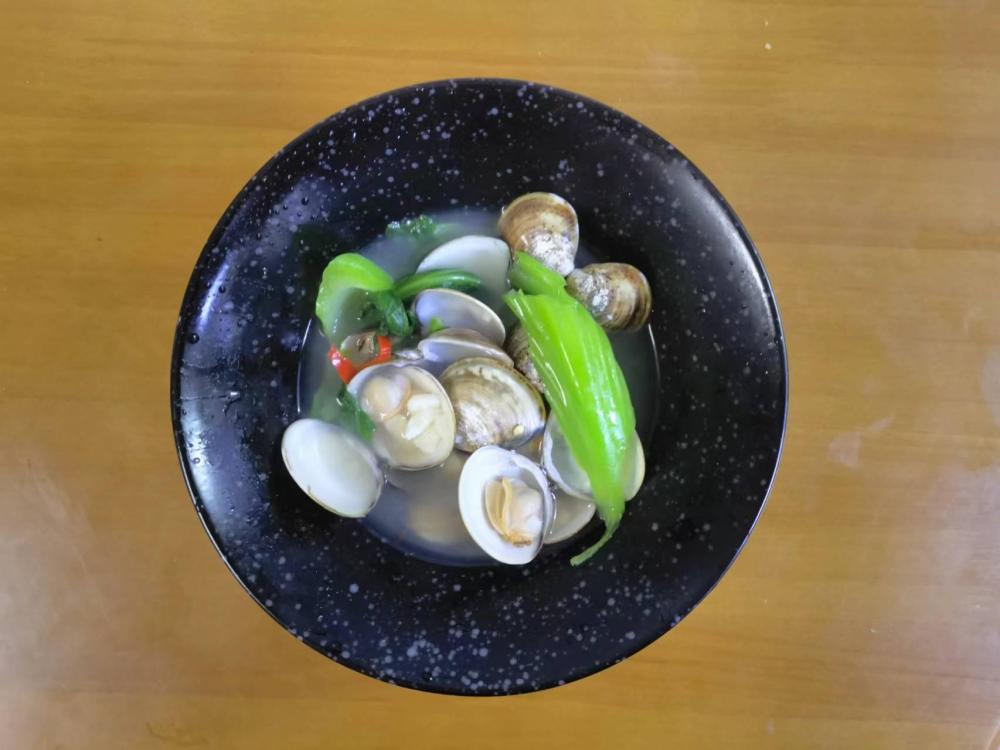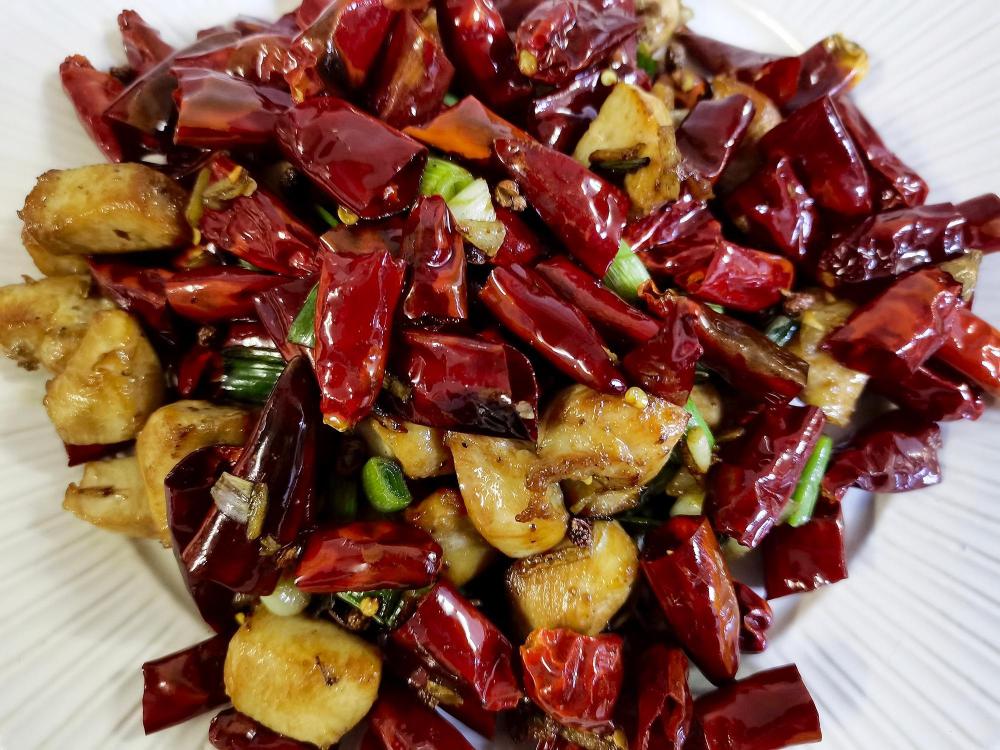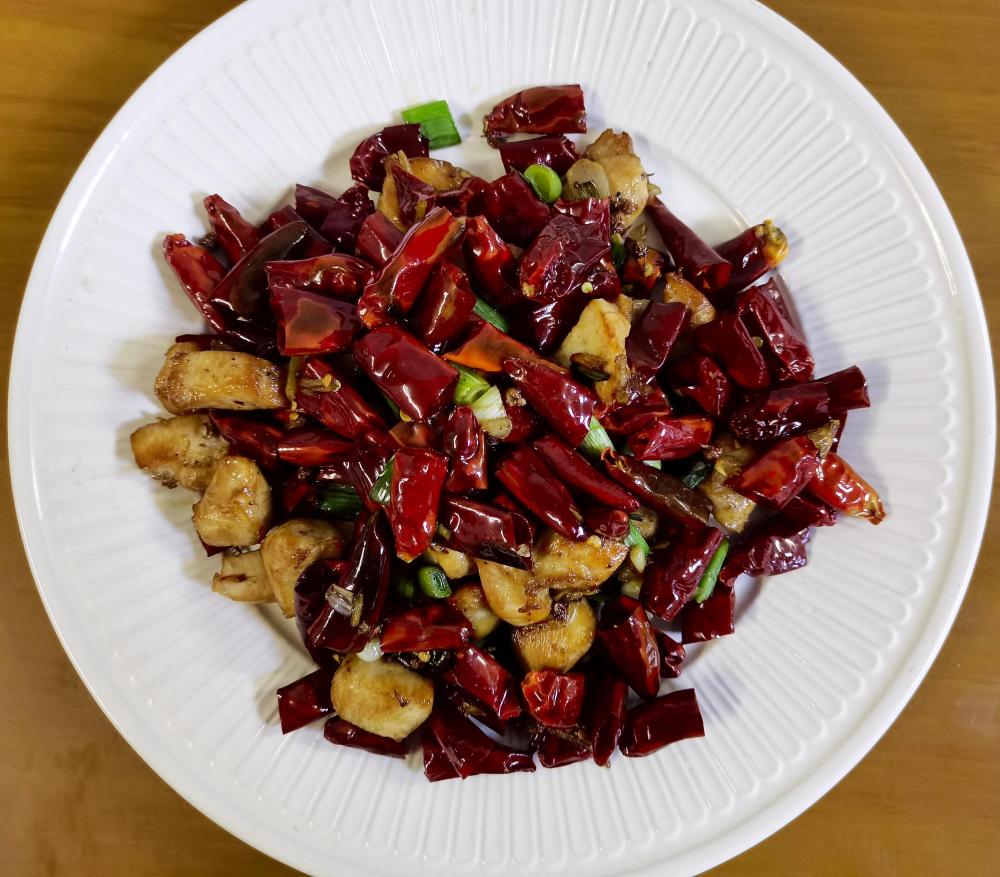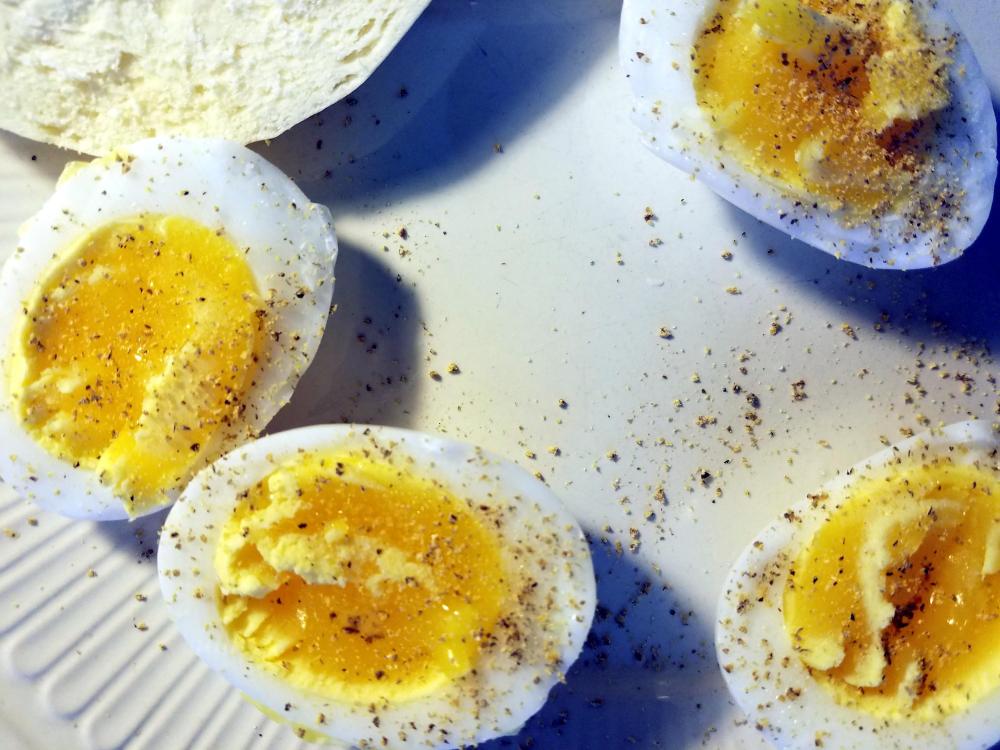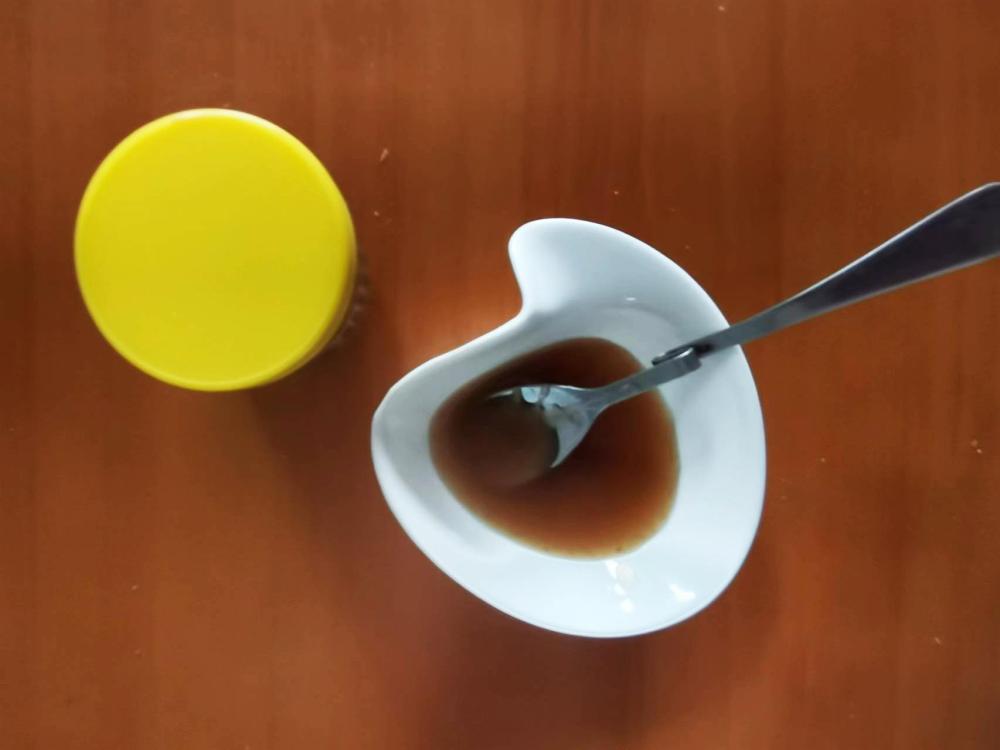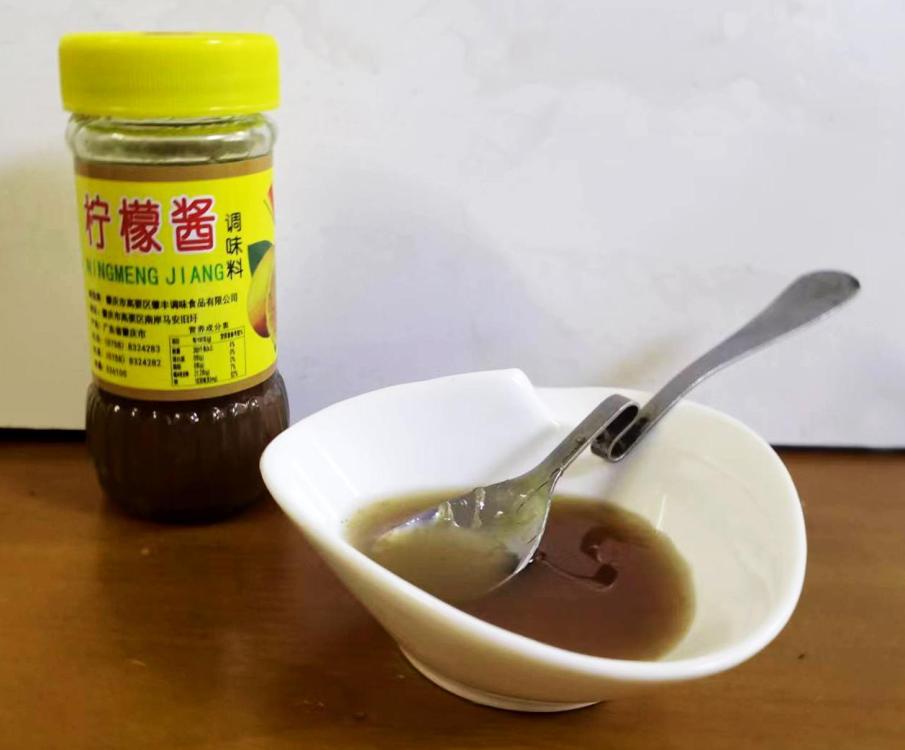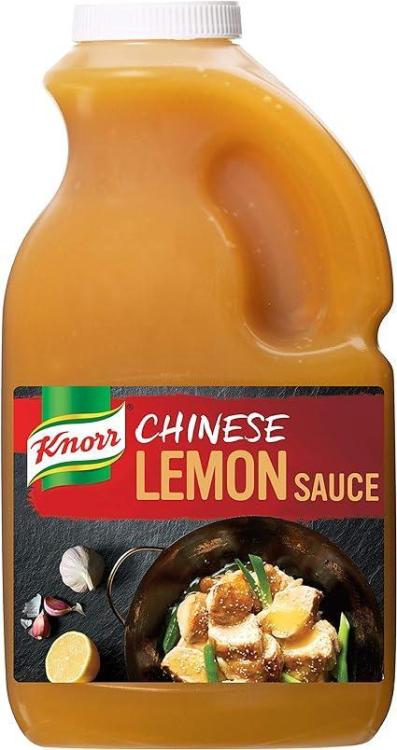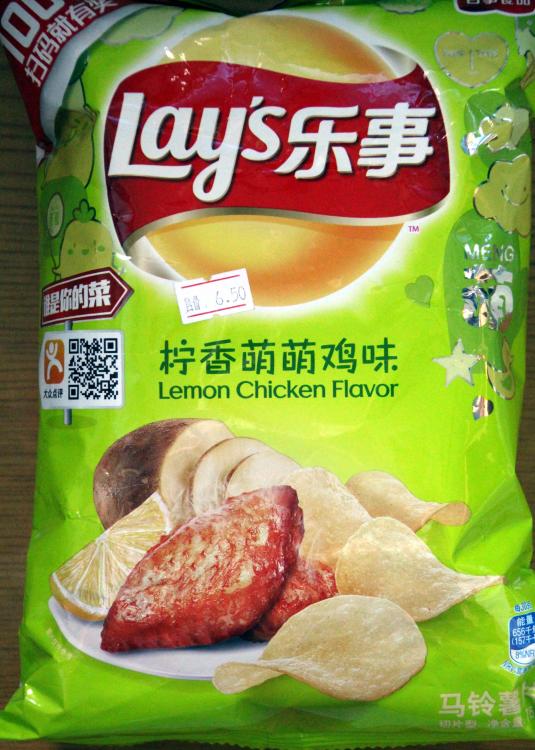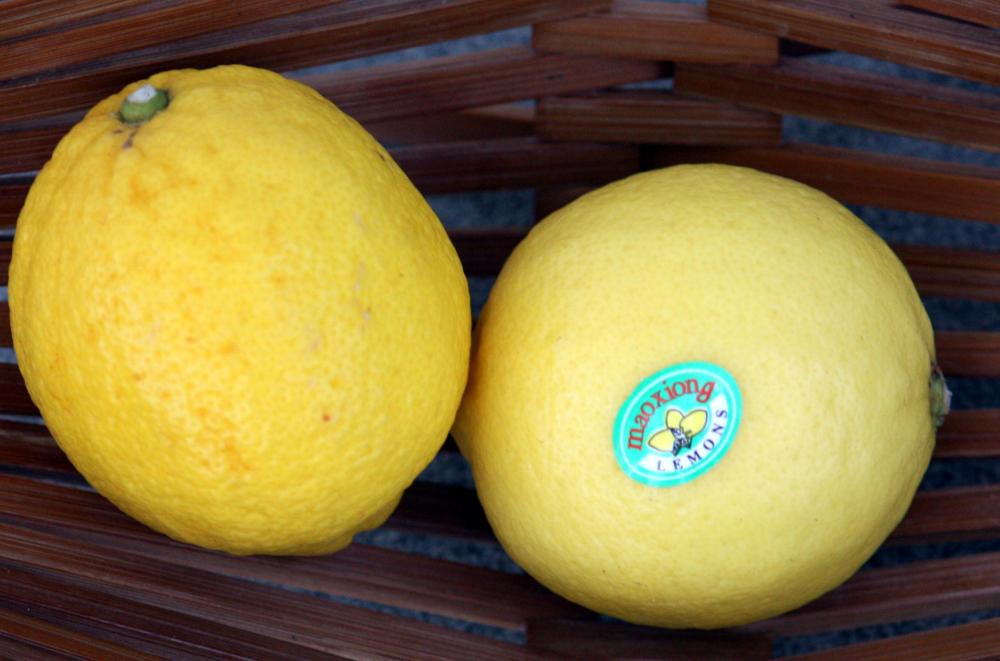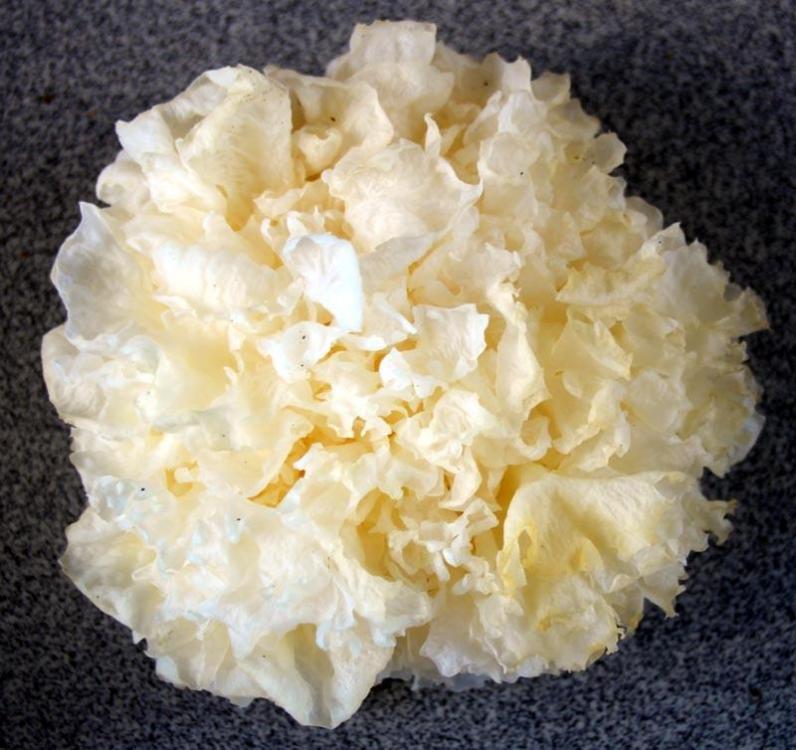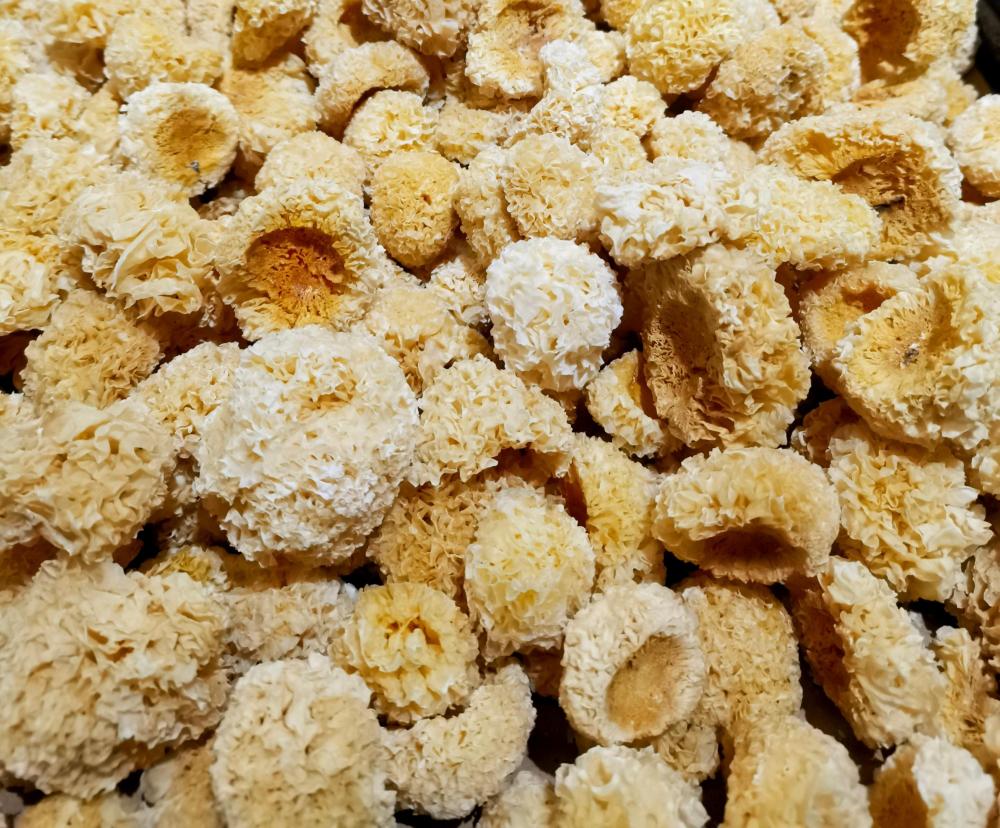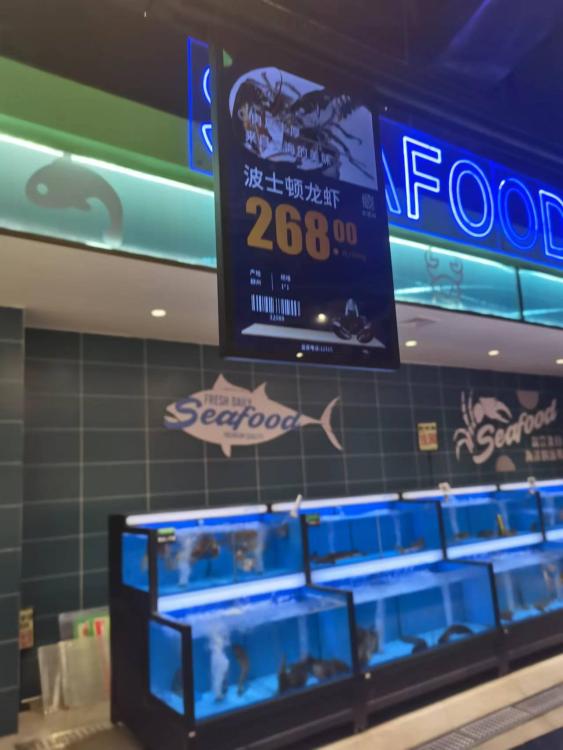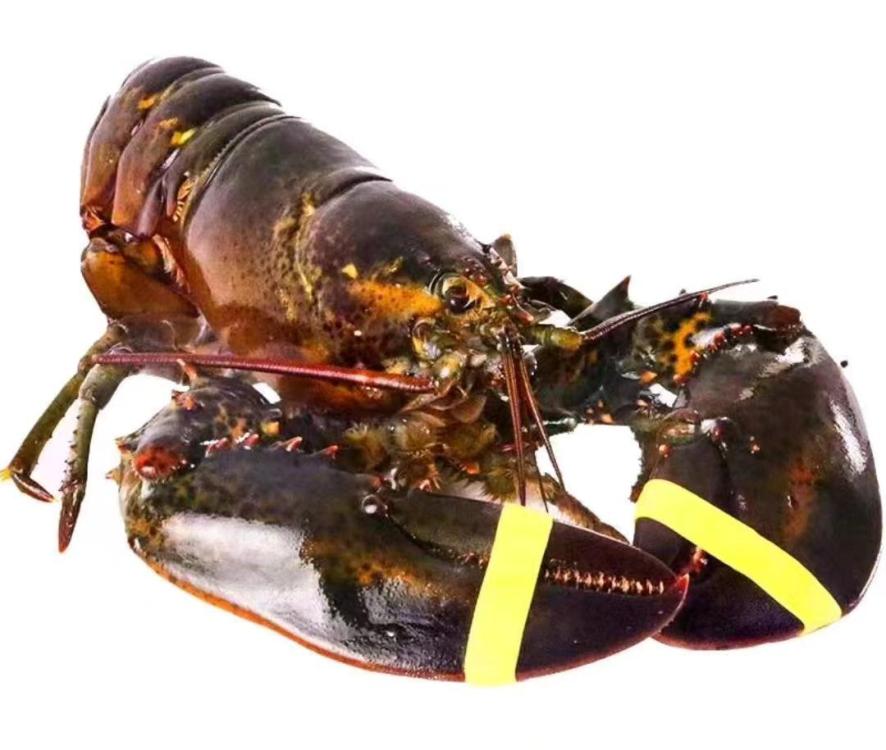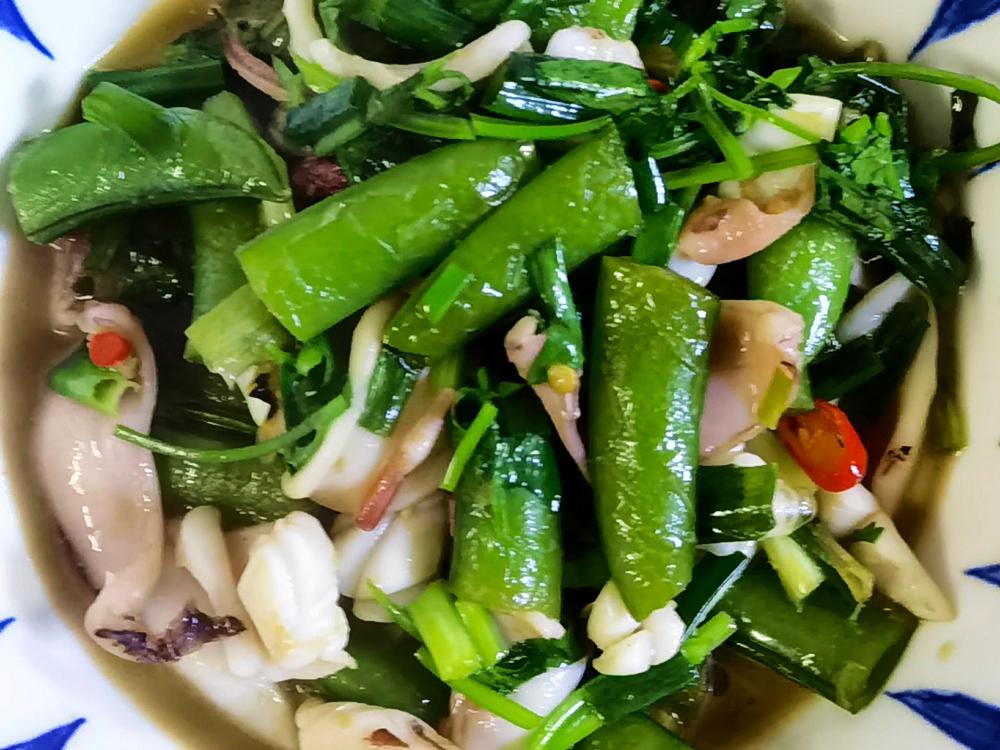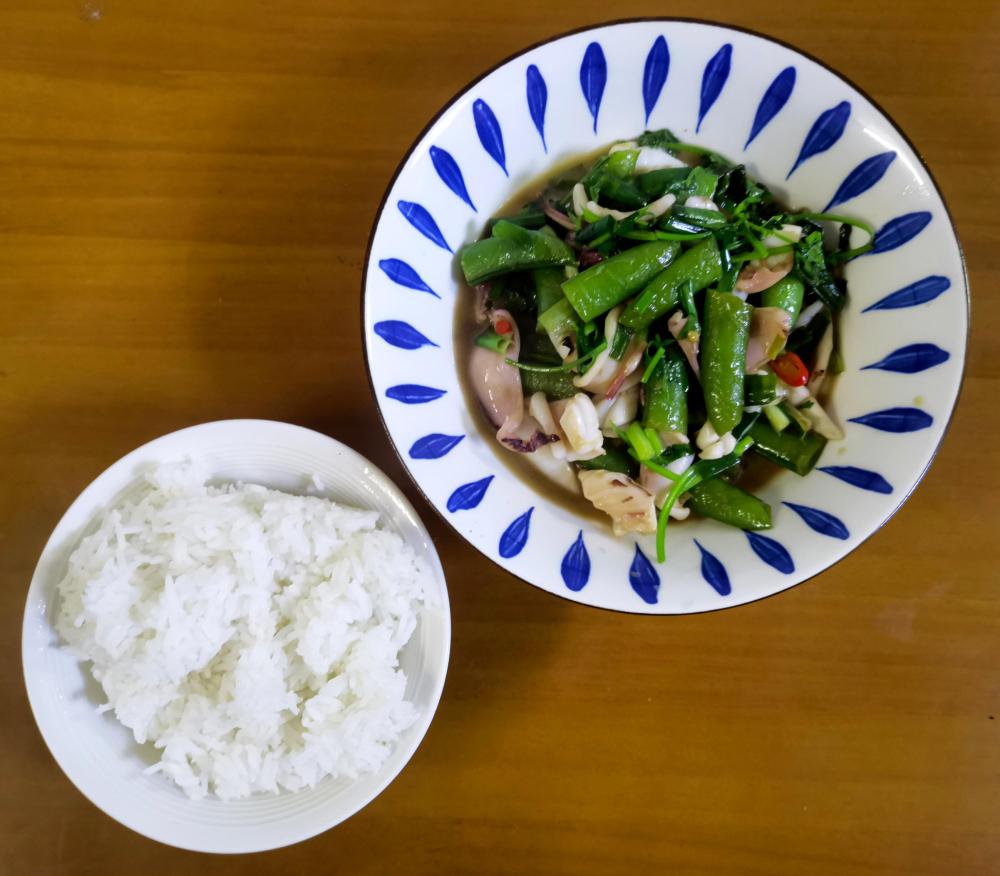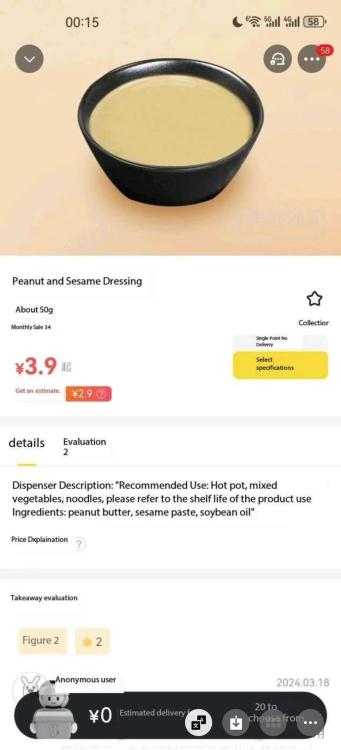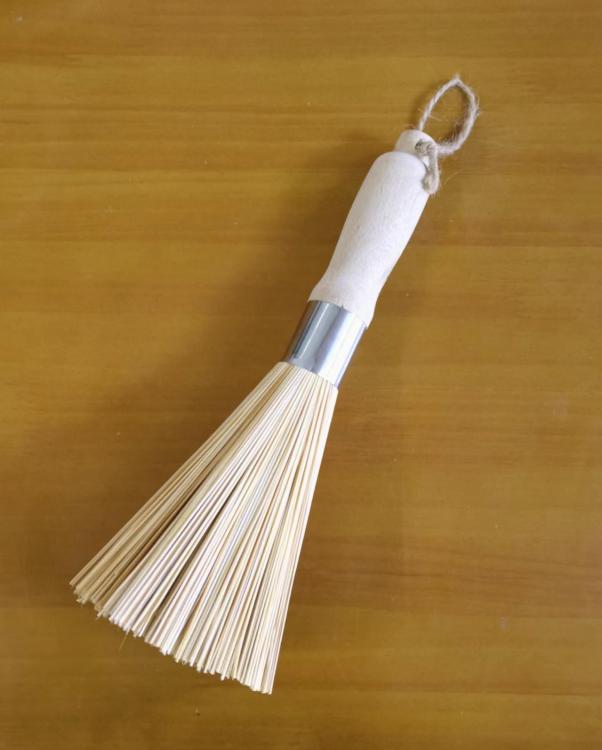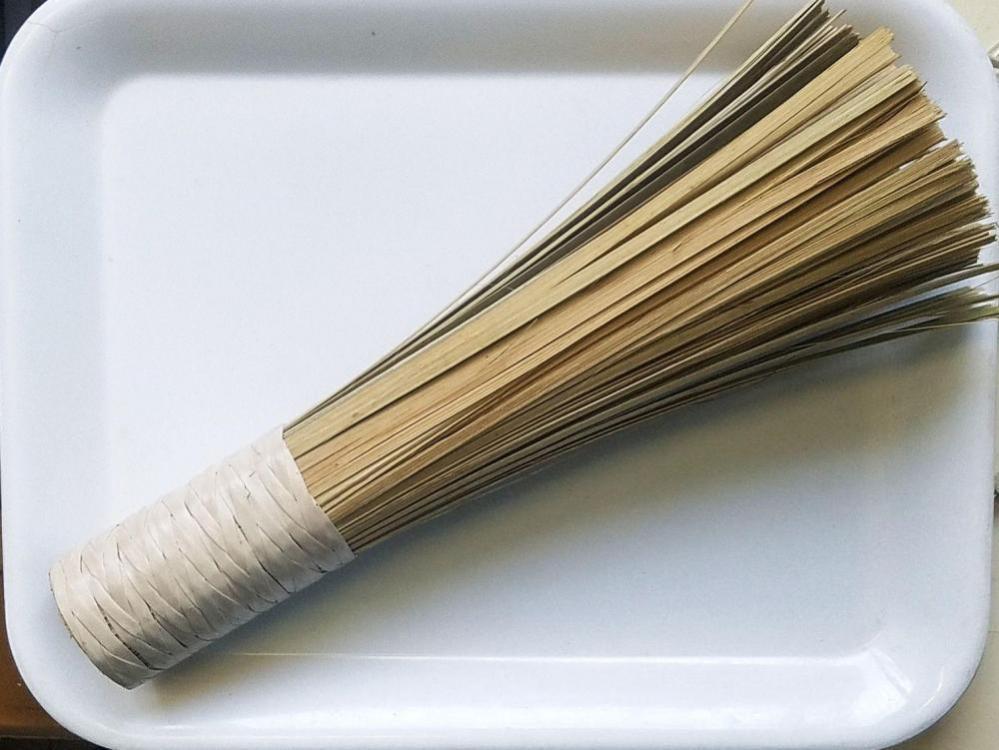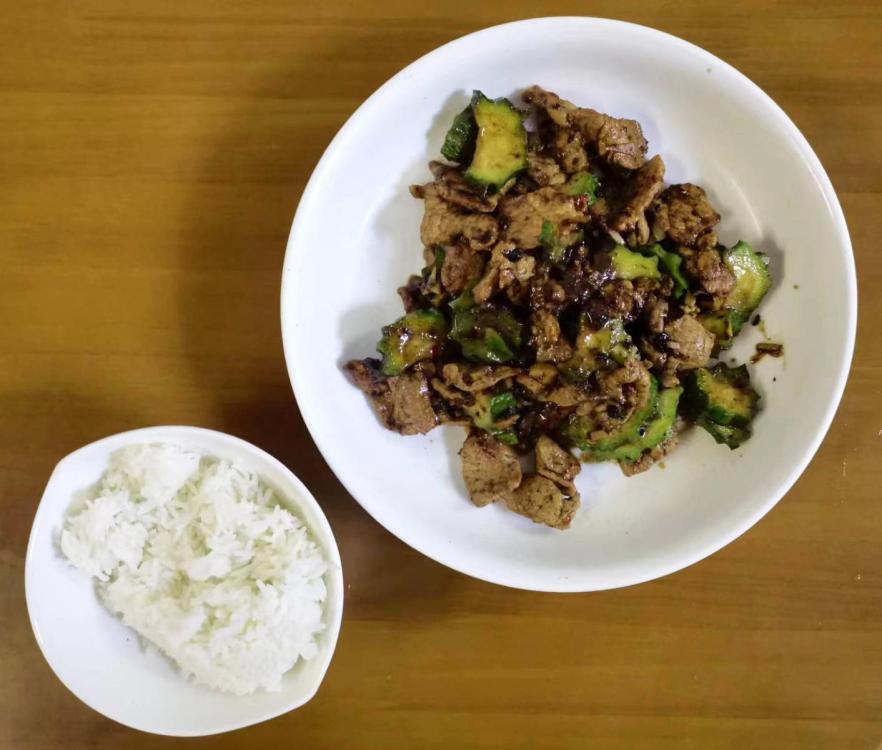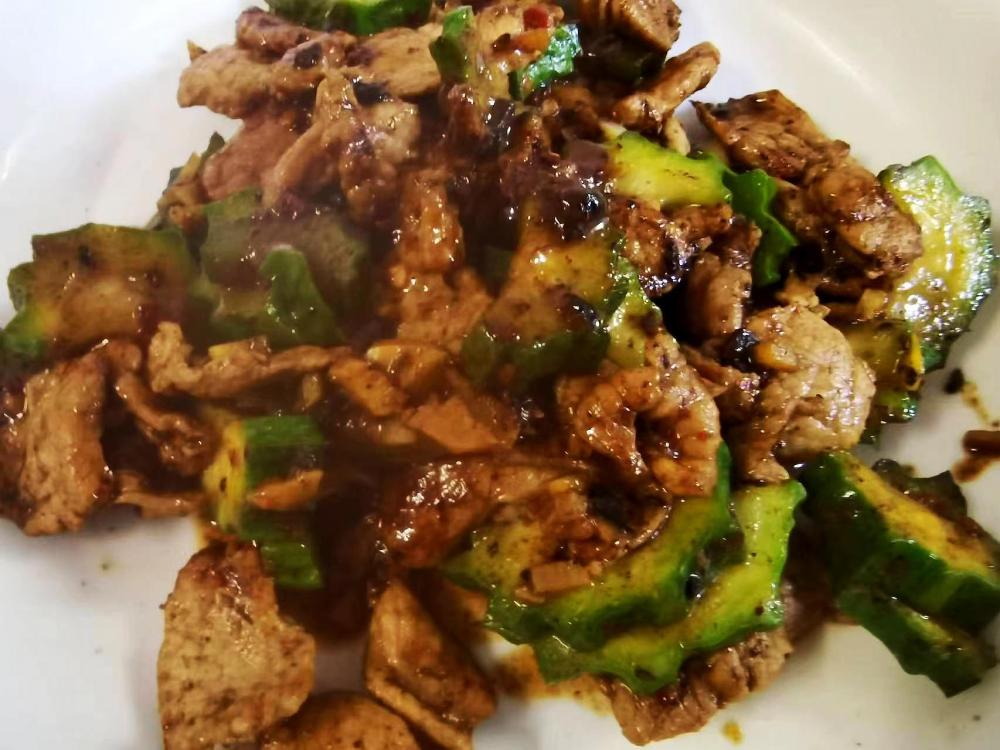-
Posts
16,751 -
Joined
-
Last visited
Content Type
Profiles
Forums
Store
Help Articles
Everything posted by liuzhou
-
No. The chillies are not eaten at all. It does seem wasteful but, as you say, they are dried and therefore not very palatable. However, they give up a lot of flavour to the chicken and there is a certain pleasure in digging through the chillies to find the meat. It's a fun dish to serve to people, although I ate that one myself.
-
I rather suspect "Hercules" is Xanthoxylon Clava-Herculis, a relative of Sichuan peppercorn but native to North America, sometimes called hercules-club or the toothache tree, in reference to its mouth numbing effect. I've had Sichuan peppercorns in cocktails in Shanghai's legendary Peace Hotel cocktail bar, so not so unlikely. Don't quote me in court, though.
-
Too big is my problem. For some reason over the last two years or more, onions sold here have been getting bigger and bigger. They are now the size of bowling balls. I stopped buying them; living alone I never cooked anything that required that much onion and if I cut them up, I usually ended up throwing most away. Now I only use shallots, which I prefer anyway. Next time I decide to make a dopiaza for the entire neighbourhood, I may buy an onion.
-
Now that this topic has been revived can I just say that I wasn't talking about Chinese cheese. There is very little of that and the little there is doesn't use rennet. i'm told it remains by my sister who makes cheese in England.
-
For years my breakfast was an industrial strength black coffee and a cigarette. I stopped smoking last century and while I still have a coffee Its less strong than before. After I retired in 2018,I started occasionally eating breakfast more but still don't always. I guess a lot of us still in the workforce are less likely to have time or the appetitie for an early meal other than maybe a slice of toast. Or, if they do have breakfast, it's often a sandwich or something and a coffee picked up from a shop or kiosk near work. I know it's what many, if not most people do in London. Until I was sick last year, I often stayed in hotels and homestays in the countryside where I would eat more - but it would be Chinese breakfasts and not anything I would (or often could) make at home. I'll never turn down a cup of oil tea in a ethnic minority villager's home.
-
Lunch was soup. Clams in a shrimp shell stock with mustard greens. should have bought spinach and squid then I could have made shrimp shell stock squid spinach soup with clams. Only ever make that at home; you'll never be able to say it to a waiter.
-
辣子鸡 (là zi jī) Chicken cubes marinated in Shaoxing and soy sauce with some salt. Deep fried then drained. then refried with 50g dried facing heaven chillis (halved and de-seeded, a tablespoon of red Sichuan peppers (whole) and chopped scallions. Sichuan / Chongqing perfection. Served with steamed asparagus and rice.
-
This breakfast topic has been running for years and has always been the least active of the Breakfast, Lunch, Dinner topic trilogy. My theory is that even the most adventurous eaters tend to be most conservative at breakfast. We all tend to fall back to a handful of favourites which we repeat over and over again, perhaps due to lack of time to be more adventurous or simply a preference for familiar comforts first thing in the morning. Dinner is when I get most adventurous. Breakfasts are said to be the meal travellers and ex-pats struggle with most. I moved from Britain to China 28 years ago and, although 90% of my meals now are Chinese, for breakfast I still tend to fall back to the old favourites – bacon, eggs, toast etc. Although, in the last couple of years, I have added congee to the rotation. I seldom post breakfast because there is seldom anything new or interesting. When in Vietnam, it’s bánh mì. Chinese friends who have moved abroad find the same. A plate of ham ‘n’ eggs or a bowl of cornflakes is alien food which they find challenging for breakfast. They want a bowl of noodles or soy milk and deep fried dough sticks (crullers). So the reason many of us don’t post here so much is that we’ve done so several times before. How many boiled eggs do we want to see?
-

A pictorial guide to Chinese cooking ingredients
liuzhou replied to a topic in China: Cooking & Baking
Sure, I meant the company is American not the chips (crisps). They tailor their flavours to the target territory - pehaps someone thought the Chinese were dying to eat a flavour they were(n't) used to! Not that any flavour of chips (crisps) ever taste of their description. I wonder if they still do luosifen flavour. They never did in Liuzhou! Weren't that dumb. -

A pictorial guide to Chinese cooking ingredients
liuzhou replied to a topic in China: Cooking & Baking
A Chinese friend asked me today what Chinese Lemon Chicken is. I replied that I didn’t know but would find out. So I spent a while online and discovered that it is popular American-Chinese dish, which explains why she (and I) had never heard of it. The local dish, Zhuang Lemon Duck, made using salt preserved lemons, is known within Guangxi but little known elsewhere in China. One recipe for lemon chicken on the internet, described as authentically ‘Chinese’, included sambal oelek which is authentically Indonesian instead. When I lived in Hunan in the late 1990s, lemons were almost unknown but always unfindable. They are easy to find here further south but rare in northern China. In fact, Chinese has no native word for lemon, instead borrowing the English name and rendering a near phonetic version - 柠檬 / 檸檬 (níng méng). Here, lemon sauce is widely available in these small 150 gram jars and used mainly as a dip for grilled / BBQd meats. It is thin and very tart. You could, I suppose, use it to make a 糖醋 (táng cù, literally ‘sugar-vinegar’), sweet and sour dish, but sweet and sour chicken is the rarest of all the sweet and sour dishes available; dishes using pork rib and fish are dominant in that genre. I have no idea what this. Certainly not available here. Lays do have these, though, but then they are American, too. -
Just came back from my local store where I had to pick up some stuff. Walked passed the bananas. Regular bananas were going for ¥2.18 for 500 grams. That's 30 cents USD for 1.1 pounds. And the markets will be cheaper. They've been around that price for as long as I can remember.
-

A pictorial guide to Chinese cooking ingredients
liuzhou replied to a topic in China: Cooking & Baking
S: 银耳; T: 銀耳 (yín ěr) is this silver tree-ear fungus, Tremella fuciformis, available in most supermarkets. They are approximately 15cm / 6 inches in diameter and weigh 190 grams / 6.7 ounces when fresh. They are more often found dried. However, today I found these: S: 小银耳; T: 小銀耳 (xiǎo yín ěr), Tremella fuciformis, small silver tree-ear fungus. They are about 5 cm / 2” max in diameter. I guess they are dropped into hotpots. Amusing more than anything. They certainly have no taste. Another one of those texture things, Chinese cuisine loves so much. ¥68 / $9.40 USD for 500 grams, but 500 grams would be a sack-load. They weigh almost nothing when dried. -
This morning I came across something in my local supermarket that I’ve never seen in any Chinese supermarket before. They were live and labelled as, and looked like 波士顿龙虾 (bō shì dùn lóng xiā), which are Homarus americanus, Boston Lobster. How they ended up here I’ve no idea. The tank held around a dozen of them. Previously I’ve only been able to order them for delivery, usually 24 hours in advance being required. The Chinese name for lobster is 龙虾 (lóng xiā), which literally means ‘dragon shrimp’. Be careful, though. The extremely popular 小龙虾 (xiǎo lóng xiā), meaning “small lobster” are crayfish. Often restaurants that provide English on their menus omit the “small”. These real lobsters were on sale for ¥268 ($37 USD) per 500 grams (1.1 lbs). Unfortunately, they were in a dark corner of the store and my photos aren’t clear. So, here’s one I had delivered at Christmas from my delivery app. It was slightly more expensive.
-
Squid with snow peas, garlic, ginger, chilli, Chaoshan fish sauce, soy sauce, coriander leaf and Chinese chives. Rice.
-
Shunyi. It's a suburb of Beijing. That said, dog isn't eaten so much in Beijing. Your pork may have been cooked in a similar manner but I'm sure (I hope) it didn't taste similar. It's chewy and rather off-tasting. Like nothing I've ever eaten before or since.
-
Dogs are eaten here; there is a dog restaurant across the road from my home. Rather unpalatable meat. I've talked about that here.
-
Carnivores generally just don't taste that good, IMO. Then there are the vitamin A problems. Pigs have become omnivorous due to humans, but are naturally herbivorous when left to their own devices. Carnivorous seafood is the big exception to the 'taste bad' notion, although many species are vegetarian. The worst things I've eaten so far are cØrn and swan.
-
担担面 (dàn dàn miàn*) in Sichuan does not use peanut butter; it sometimes, but not always, uses sesame paste and is sometimes, but not always, garnished with raw peanuts. It is was originally a street food snack dish which with no standard recipe. All the recipes I've seen in English are very American-Chinese with ingredients from all over China that would be unlikely to be used by street vendors in Sichuan if even available. I’m reasonably certain peanut butter powder doesn’t exist in China; a search in Chinese on Chinese search engines reveals nothing. * The official Mandarin transliteration in China. Tan Tan is just an older, outdated transliteration never used in China and now mainly only used in America
-
Not a lot. It's not that common, but Skippy is available and there are Chinese brands, too. It is used in noodles sometimes, yes. However, the most common use here is in SE Asian style saté sauce and is used as a dip. More here. Here is a screen shot of a peanut and sesame sauce (with computer translation) from my local delivery app. First time I've seen it!
-
What a fun packed life I live! Today I bought a new wok brush. The Present Its handle is a different shape from the ones I've being buying for decades! I'd better go lie down before I get over-excited. The Past
-
Stir-fried pork with ridged luffa. garlic, sand ginger, black fermented beans, Shaoxing wine, Chaoshan fish sauce. Rice.
-
I know I'm not their demographic but give me a break! Heinz and Mattel join forces to create pink 'Barbiecue' sauce and, of course, it's vegan.
-
I'm not a big fan of garlic presses. I have, however, had this one for about twenty years. It's a no name brand from my local supermarket. The good thing about it is that the mesh part the crushed garlic goes through is removable, making for easier claning. Although I use garlic almost every day, I prefer to use a Chinese cleaver to just bash it or chop it depending on what I'm cooking. Even easier cleaning, too.
-
I'm so jealous. Although rhubarb is native to China, it is never sold in food stores. It all goes to be dried as Traditional Chinese Medicine (TCM) to cure absolutely nothing! What a waste.




